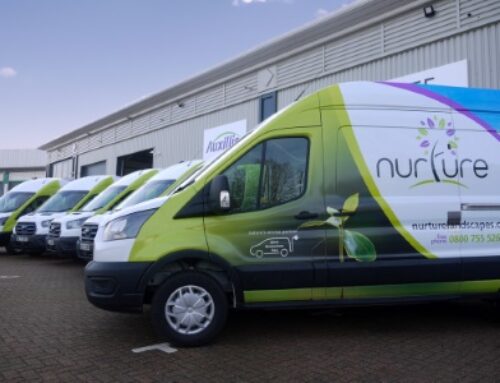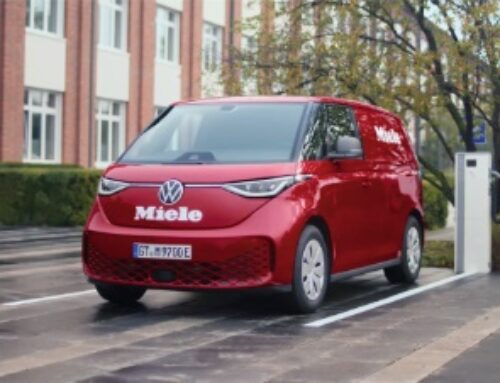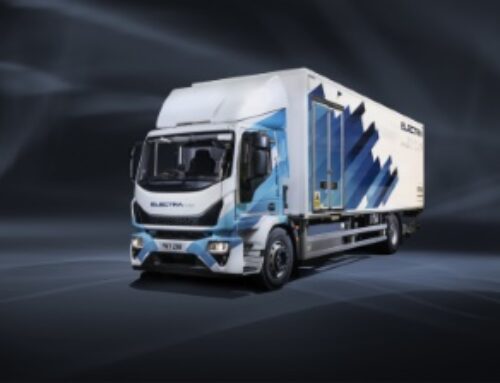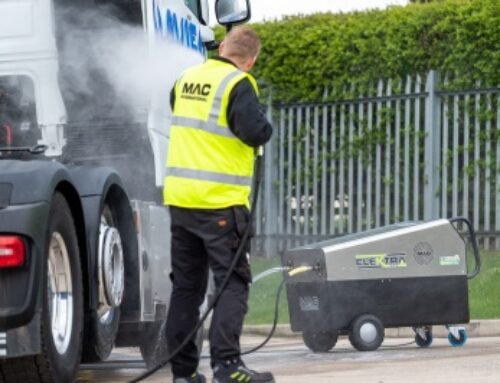HVO: sustainable sourcing in the spotlight
 Katrina McDonnell, head of energy solutions and transition at Certas Energy, says sustainability is just as important as driving down tailpipe emissions when it comes to HVO
Katrina McDonnell, head of energy solutions and transition at Certas Energy, says sustainability is just as important as driving down tailpipe emissions when it comes to HVO
Hydrotreated vegetable oil (HVO) is fast becoming the diesel alternative of choice for transport, winning the favour of future-focused fleets keen to kick-start their energy transition.
With its ability to cut a company’s fuel-related carbon footprint by up to 90 per cent instantly, it is little wonder that HVO is rising in the popularity ranks. In addition to its significant emission-cutting capabilities, making the switch to HVO is hassle-free. It can be used in existing vehicles and machinery, without the need for engine modifications, capital expenditure or new infrastructure.
The FAME and fossil-free fuel also offers excellent low-temperature performance, and improved combustion over some diesel alternatives. What’s more, as it is completely interchangeable with DERV (white diesel), transport companies who wish to make a gradual transition to the renewable diesel can do just that.
HVO offers fleets a route to decarbonisation, without the unwanted downtime. However, when choosing a HVO supplier, it’s important to carry out due diligence to find a tried, trusted and transparent supplier who can back up their carbon reduction claims and support businesses in achieving their sustainability goals.
The value of measuring life-cycle vs tailpipe calculations
Much of the focus on HVO is around its capabilities to cut greenhouse gas emissions. However, there is more to HVO than meets the eye and careful consideration needs to be given to its sustainability credentials.
For example, a number of factors can affect the ethical and ecological impact of HVO sourcing, such as geopolitics, deforestation and the type of feedstock.
It is also noteworthy that the level of greenhouse gas emission savings can vary between products, as they do not come entirely from tailpipe emissions. Savings are influenced by life-cycles, well-to-wheel calculations, feedstock, production processes and transportation. Complete visibility of the fuel’s upstream supply chain is therefore required to validate downstream sustainability claims.
Where to go for HVO
As not all HVO is created equal, choosing a fuel partner who can provide evidence of reputable and recognised accreditation and full supply chain transparency is imperative. But what should transport operators be looking for?
Transport companies should seek out suppliers who hold an International Sustainability & Carbon Certificate (ISCC), which is a reliable method of distinguishing between sustainable and non-sustainable biofuel offerings.
They should check if the supplier is a member of the Zemo Partnership, a non-for-profit independent partnership created to accelerate the transport industry’s transition to net zero. The Zemo Partnership also manages the Renewable Fuels Assurance Scheme (RFAS), which verifies the GHG emission savings claims and provenance of raw material feedstocks of a selection of approved Recognised Fuel Suppliers.
Finally, suppliers should be able to demonstrate a fully validated and auditable supply chain with a Proof of Sustainability certificate. All raw materials used for Certas Energy HVO are rigorously checked and fuel supply credentials are audited by the Department for Transport (DfT) and under the RFAS. This guarantees fleet managers that the HVO purchased from Certas Energy is substantiated and sustainable. In turn, this allows transport companies to confidently and tangibly demonstrate that they are progressing towards their net zero goals.
Proud pioneers of sustainability
At Certas Energy, we believe in leading by example rather than paying lip service. That is why we are in the process of adopting HVO across our own delivery fleet, underlining our confidence in the diesel alternative as a viable, future-proofed fuel.
Following a successful trial at two depots, which saw almost 1,000 tonnes of CO2 emissions cut from operations in just one year, we are already well on our way to rolling out the renewable diesel across our 900-strong fleet.
What’s more, in 2022 Certas Energy became the first supplier in the UK to offer HVO fuel to HGV fuel card users at the pump and we are in the process of expanding supply across our HGV refuelling network.
For transport companies who bulk buy fuel, we now deliver HVO directly to businesses nationwide. We also offer convenient and cost-effective ways to trial HVO before committing to a full switch, such as split deliveries, where renewable diesel is supplied in intervals, and in intermediate bulk containers (IBCs).
These delivery options have been designed to help businesses to make the transition to HVO, at their own pace.
Fuelling the future with HVO
Net zero may seem like a distant and ambitious target. However, emerging and established technologies, such as HVO, are bringing us one step closer to achieving those goals. With its seamless integration and significant carbon savings, it is easy to see why HVO is gaining traction in the transport space. But it is important that companies seek out the right supplier with the right credentials.
At Certas Energy, we are committed to helping businesses embark on their low carbon journey with confidence and peace of mind – and take pride in assisting the transport industry’s energy transition in 2023 and beyond.










